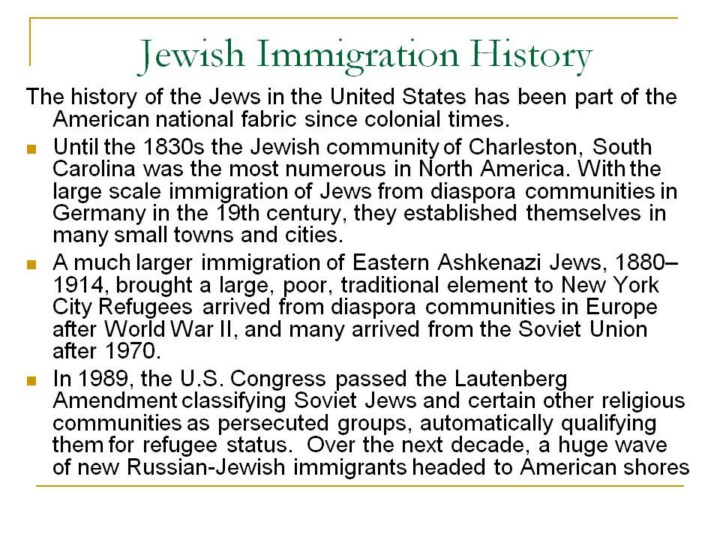| front |1 |2 |3 |4 |5 |6 |7 |8 |9 |10 |11 |12 |13 |14 |15 |16 |17 |18 |19 |20 |21 |22 |23 |24 |25 |26 |27 |28 |29 |30 |31 |32 |33 |34 |review |
 |
For more information see: http://en.wikipedia.org/wiki/History_of_the_jews_in_the_united_states
The Russian-speaking Jewish immigrants of the 1970s and early 1980s integrated relatively quickly into American society because about 80% of them were refugees or relatives of refugees, and hence entered the U.S. with a politicized identity, stigmatized in the USSR and psychologically prepared for permanent settlement in the U.S. no matter what the hardships. Some started Americanizing themselves while still in the USSR by learning English, preparing professionally, and accumulating knowledge about America, a process sociologist Robert Merton has called “anticipatory socialization.” The immigrants of the 1990s were different. They left home primarily because of economic collapse, fear of possible pogroms, and disintegration of the state. This wave was less politicized and, ironically, less prepared for integration into American life. It included large numbers of non-Western Jews, such as Bukharian, Georgian and Mountain Jews. Over the last few years, a noticeable number of Russian-speaking Jews who initially went to Israel have chosen “second emigration” to the U.S.
|